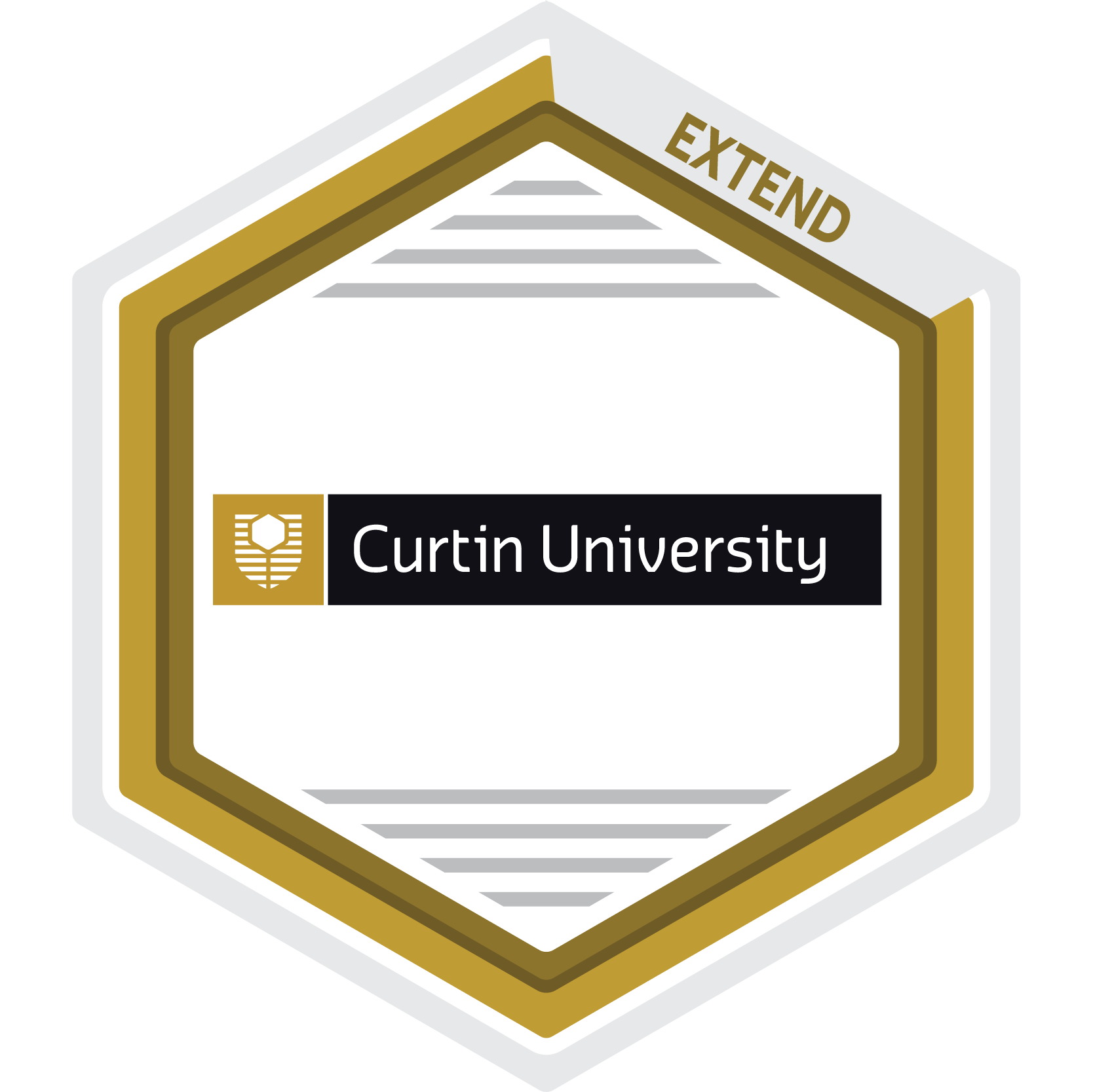Practical Geostatistics
Ended Jul 19, 2024
25 credits
Sorry! The enrolment period is currently closed. Please check back soon.
Full course description
Master spatial data analysis, learn kriging techniques and gain skills in mineral resource estimation to help you make effective industry decisions.
Capturing accurate spatial data is key to making effective decisions in exploration, mining and resource management.
You’ll learn geostatistical theory and gain hands-on experience with industry-standard geostatistical software, and study spatial data analysis, variability and spatial dependence, kriging techniques, resource estimation and uncertainty management.
As a geoscientist, this knowledge will empower you to make informed decisions and contribute to mineral resource estimation and environmentally responsible practices.
Please note:
This course has been set up with flexibility in mind. There will be independent learning with fully online content and a face-to-face workshop week at Curtin University in Perth, Western Australia.
Three key components are:
- Fully online pre-reading and a Statistics review module you can undertake in your own time when the course opens 4 weeks before the workshop.
- The majority of the learning will be in the 5 day intensive face-to-face workshop at Curtin University, Bentley Campus. This will run from Monday 17 June - Friday 21 June 2024.
- Assessment in the form of a resource estimation report can be finalised in your own time and submitted up to 4 weeks after the workshop.
See below for more information.
This credential will suit geoscience professionals who are employed in the resources sector.
By completing this credential you will learn to:
- Estimate mineral resources with confidence, taking into account spatial variability and uncertainty.
- Analyse and interpret geological data using industry-standard geostatistical software.
- Apply tools to quantify and manage uncertainty in resource assessments.
Assessment(s)
To successfully complete this credential, you are required to pass a final assessment. To demonstrate what you have learned, you will analyse and create a report for the estimation of a mineral resource.
Senior Lecturer/WASM: Minerals, Energy and Chemical Engineering
Dr Apurna Ghosh is a senior lecturer at the Curtin WA School of Mines, specialising in mine safety management, mine planning and design, resource estimation and mining systems. He is responsible for identifying workplace risk factors in mining settings to ensure workplace health and safety. Dr Ghosh has taught and conducted research for more than two decades and published widely, including articles on mine safety and dust control. He has a keen interest in geoinformatics.
Senior Lecturer/School of Earth and Planetary Sciences (EPS)
Dr Mehrooz Aspandiar is a lecturer in Curtin University’s School of Earth and Planetary Sciences. He coordinates and teaches geoscience units for undergraduate and postgraduate students, specialising in mineral exploration, mining geology, sedimentary field geology, geochemistry and introductory communications. His collaborative research focuses on understanding the surface earth materials, or regolith, that covers much of Australia, and represents the critical zone where the geosphere, biosphere and atmosphere meet and interact.
Head/School of Earth and Planetary Sciences
Ian is a geologist who has worked at Curtin University since 1998. He was Head of the School of Earth and Planetary Sciences from 2018 until 2024, leading Curtin’s teaching programs in geoscience, geospatial science, and surveying, which are amongst the largest suppliers of graduates in these disciplines to the Australian resources sector. The School also conducts research in geology, geochemistry, geophysics, geodesy, space and planetary science, satellite positioning and Earth observation, and Ian’s own expertise is the bedrock of Antarctica and other parts of the ancient Gondwana landmass. Ian has taught more than 2000 students since 1998, delivering classes on introductory geology, field geology, metamorphism and mineral deposits, and he coordinates Curtin’s professional postgraduate programs in mineral exploration geoscience.
Principal Resource Geologist, MEC Mining
Dean O’Keefe is a geologist, geostatistician, and quarry manager, with ten years experience in mines as senior mine geo and Chief geologist.
Dean started and managed a global consulting group and was based in Beijing for ten years, completing JORC and NI43-101 studies for ASX, TSX, HKSX, and London submissions. Projects for listed companies included REE, tin, precious metals, ferrous metals, and coal.
Dean taught geostats and MRE extensively in Russia, Mongolia, and China, including to the Chinese army.
Dean is Principal Advisor at MEC Mining.
In your five-day intensive at Curtin Perth, you’ll learn geostatistical theory and gain practical hands-on experience with industry-standard geostatistical software. These days will also be catered.
| Date | Monday 17 June - Friday 21 June 2024 |
| Time |
9am-5pm daily. |
| Location | Curtin University, Bentley Campus, Building 207, Level 3, Room 320 computer room. Perth, Western Australia. |
Once you successfully complete and pass the final assessment, you'll earn a digital badge that is instantly shareable to your social networks (including LinkedIn) which showcases your new skills and knowledge mastery.

This credential allows you to acquire intermediate knowledge and skills in a discipline. This credential usually requires you to have some related prior learning or experience.
You will also earn 25 credit points which are in line with Australian Qualification Framework Level 8 criteria, ensuring comprehensive theoretical and/or technical knowledge of the credential. 100 credit points are required to earn a Graduate Certificate at Curtin.
For more information on this, or any other questions about Curtin Credentials, email us at curtincredentials@curtin.edu.au or call Curtin Connect at 1300 222 888.
*Curtin may cancel or reschedule a credential at any time and for any reason as it sees fit. The Start Date and the other details of this credentials are provided as a general guide only and may change from time to time.
✝This credential/program involves 100 hours of online resources, a face-to-face workshop week, readings, activities and assessments. However to pass and earn 25 credit points, you may need to commit further time.
^A mix of online and face-to-face learning.
§Price subject to change. Please check price at time of purchase.






